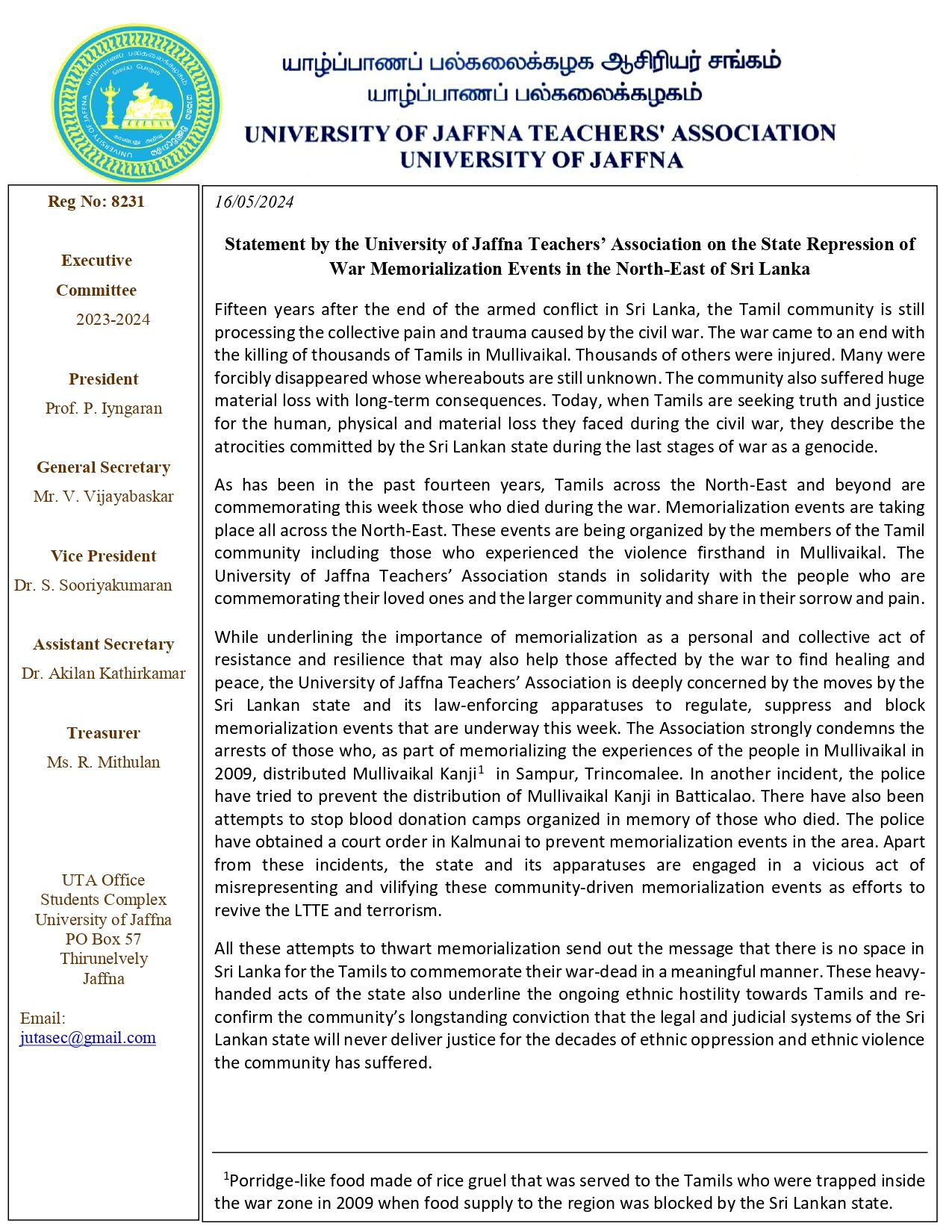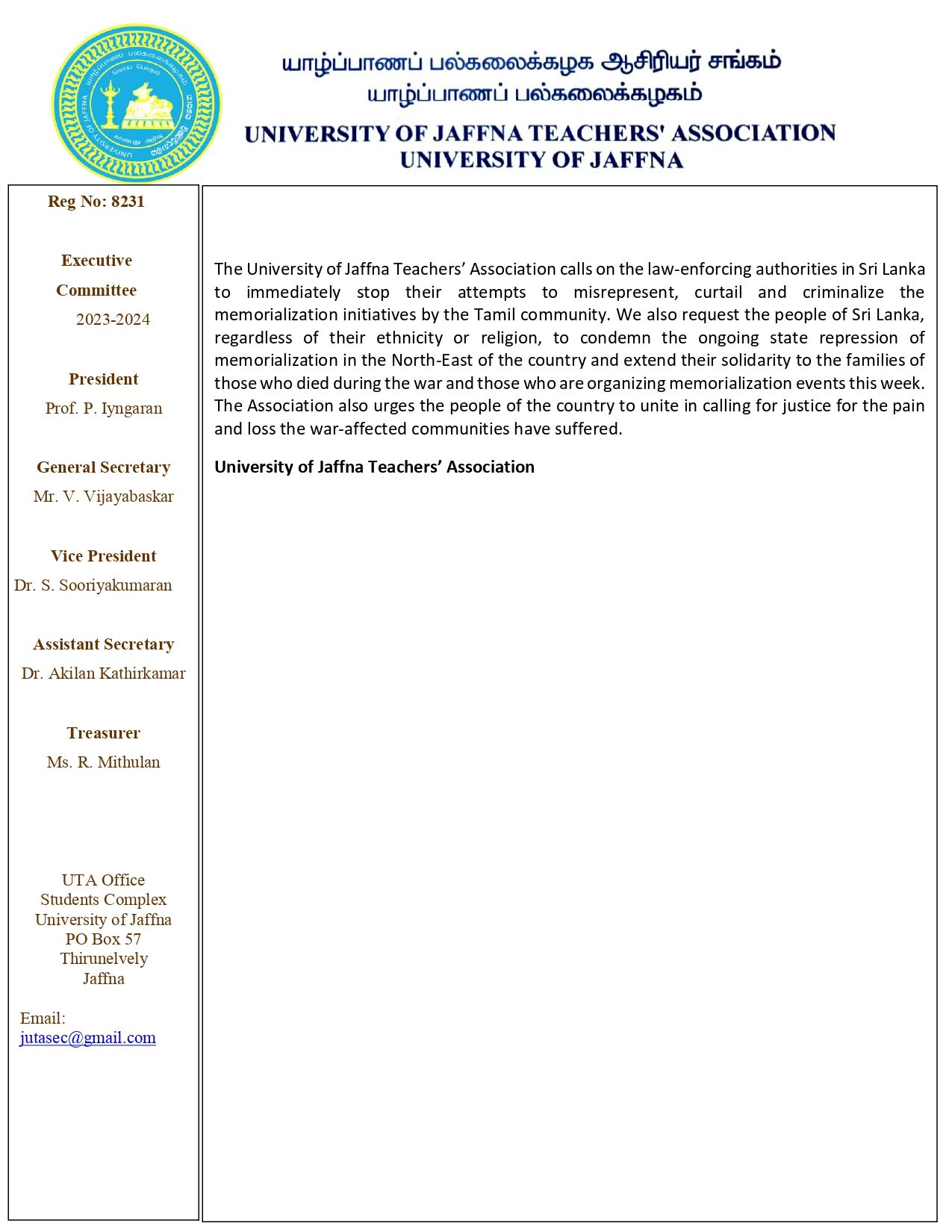.jpg)
The Jaffna Teachers Association and student union denounced the move by the Sri Lankan government to stop remembrance commemorations ahead of May 18, also known as Tamil Genocide Remembrance Day.
“These heavy-handed acts of the state also underline the ongoing ethnic hostility towards the Tamils and reconfirm the community’s long-standing conviction that the legal and judicial system of the Sri Lanka state will never deliver justice for the decades of ethnic oppression and ethnic violence the community has suffered,” the Jaffna University Teachers Association said.
The teachers union asserts that even though it has been 15 years since the end of the armed conflict Tamils are still seeking truth and justice for the human, physical, and material loss they had faced during the armed conflict.
They added that while they stood in solidarity with the Tamils they were increasingly concerned over attempts by the Sri Lankan state and law enforcement to regulate, suppress, and block memorialization events that are underway this week.
The Jaffna Students Union in their statement has also condemned the move by the Sri Lankan government to clampdown on commemorations by arresting the organizers and individuals who help with these events. The student collective emphasized that the events during Remembrance Week leading up to the Mullivaikkal commemoration have become a “substitute for psychological comfort” for Tamils as they share their sorrows, and the horrors and relive the stories that emanate from the final phases of the armed conflict.
“Justice for those who have been tortured and enforced disappeared by Sri Lanka's armed forces has become elusive while the Tamil people have lost faith in the Sri Lankan judicial system,” they said. “In recent times, the prevention of events related to commemoration and the threats to the organizers have continued to cause further distress to the people affected by the war.”
They also said that such actions have proven that there’s no space for reconciliation, even for the sake of it and that all actions of the Sri Lankan state violates the conventions and declarations accepted by the Tamil and International community, proving that any internal truth-seeking mechanism will be untenable.


